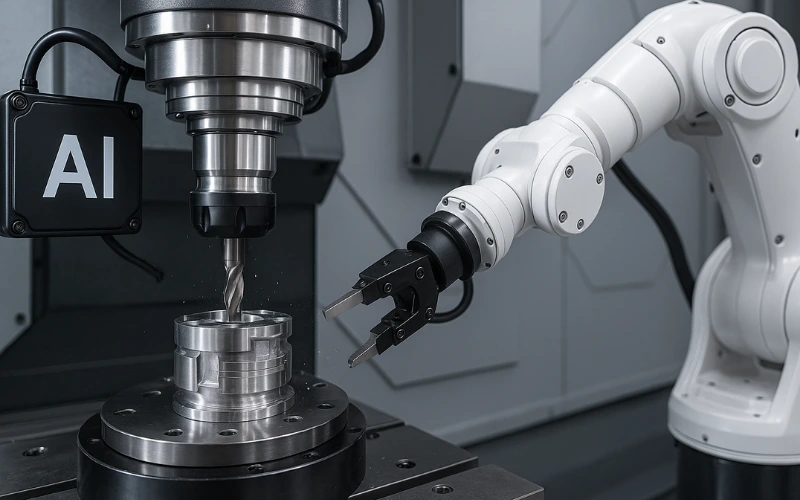Top Trends in CNC Machining for Rapid Prototyping in 2025

CNC machining continues to evolve rapidly, driving innovation in rapid prototyping. In 2025, manufacturers increasingly focus on speed, precision, and flexibility to meet market demands. BOONA Technology, a leading custom CNC machining provider, exemplifies these trends with its advanced services and expert engineering support.
1. Accelerated Production Processes
The demand for quick market launches pushes CNC shops to optimize efficiency. At BOONA, rapid prototyping projects can be completed in as little as three days while maintaining strict tolerance standards. Such speed is critical for companies eager to test and iterate product designs swiftly.
| Metric | BOONA CNC Machining Capability |
|---|---|
| Prototype Turnaround Time | As fast as 3 days |
| Tolerance | ±0.01 mm for molds |
| Order Volumes Supported | Low to high volume |
This accelerated timeline helps businesses reduce time-to-market and gain competitive advantages.
2. Comprehensive Design and Engineering Support
Early-stage manufacturability analysis is crucial to optimize parts for CNC machining. BOONA offers free design support and quotations, enabling teams to refine their prototypes prior to machining. This service reduces costly redesign cycles and improves final product quality.
3. High Precision and Stringent Quality Assurance
Precision is paramount for prototypes and molds. BOONA’s CNC machining maintains tolerances up to ±0.01 mm catering to high-precision plastic injection molds. The company holds ISO 9001 certification, guaranteeing high quality with thorough inspections and surface finishing.
| Quality Control Features | Description |
|---|---|
| ISO 9001 Certification | Ensures consistent quality |
| Visual Inspections | Detect surface and dimensional issues |
| Surface Treatment | Enhances part appearance and protection |
High reliability in machining ensures prototypes are reliable for functional and aesthetic testing.
4. Flexible Production Scale
BOONA offers tailored on-demand manufacturing solutions that cater to both prototype development (low volume) and mass production (high volume). This flexibility helps companies scale production without changing vendors or processes.
-
Low-Volume Production: Quick turnarounds for prototypes or short runs.
-
High-Volume Production: Efficient batch machining for large orders with consistent quality.
5. Advanced Finish and Mold Manufacturing
Surface finishing services for metals, composites, and plastics are incorporated to optimize performance and looks. Additionally, BOONA specializes in mold manufacturing that ensures smooth injection molding production essential to mass manufacturing.
6. Integrated Supply Chain Solutions
To simplify production pipelines, BOONA partners with trusted manufacturers for complementary processes like 3D printing, sheet metal fabrication, die casting, and extrusion. This network allows streamlined outsourcing and supply chain efficiency.
Summary Table of BOONA CNC Machining Services
| Service Area | Features & Capabilities | Benefits |
|---|---|---|
| CNC Machining | High precision, fast turnaround, ±0.01 mm | Rapid prototyping, reliable parts |
| Design & Engineering Support | Free manufacturability analysis, quotations | Enhanced design, reduced errors |
| Surface Finishing | Metal, composite, plastic finishing | Superior part appearance and durability |
| Mold Manufacturing | Precision plastic molds | Smooth injection molding production |
| Production Flexibility | Low to high volume, on-demand manufacturing | Scale production without switching vendors |
| Supply Chain Integration | Outsourcing 3D printing, die casting, etc. | Simplified procurement, cost/time savings |
FAQs
1. What makes CNC machining ideal for rapid prototyping in 2025?
CNC machining offers speed, high precision (down to ±0.01 mm), and versatility across many materials including metals and plastics. It enables quick iterations and functional prototypes that closely mimic final products, which accelerates the development cycle and reduces costs compared to traditional prototyping methods.
2. How fast can prototypes be produced using CNC machining today?
Rapid prototyping projects can be completed in as little as 3 days with modern CNC machining centers, meeting strict tolerance requirements while enabling faster product launches and multiple iterative testing rounds.
3. What materials are commonly used in CNC rapid prototyping?
A wide range of materials is supported, including aluminum, steel, brass, titanium, high-density polyethylene, polycarbonate, and composites. This flexibility lets engineers select materials that balance strength, weight, and cost for optimal prototype function.
4. How does CNC machining compare to other rapid prototyping methods?
CNC machining delivers sub-millimeter precision (±0.01 mm), whereas some additive methods offer millimeter-grade accuracy. CNC is better for functional, high-tolerance parts and medium to low volume production runs, while additive manufacturing provides greater design freedom for complex geometries.
5. Can CNC machining be combined with additive manufacturing?
Yes, hybrid manufacturing that merges CNC machining and 3D printing optimizes design potential, speed, and material use. For instance, 3D printing can create complex internal structures followed by CNC finishing for high precision on critical features.
6. What quality assurance processes ensure prototype accuracy?
ISO 9001 certification, visual inspections, and surface treatments are common quality controls in CNC prototyping. These ensure dimensional accuracy, smooth finishes, and durability needed for functional testing and appearance.
7. Is CNC machining cost-effective for prototyping?
CNC machining is cost-effective for small to medium runs because it requires no expensive molds. Automated processes reduce labor costs and machining times, particularly valuable for startups and specialized production.
8. How does BOONA support rapid prototyping needs?
BOONA Technology offers free design and manufacturability analysis, fast turnaround (as fast as 3 days), strict tolerance control (±0.01 mm), and flexible production from low to high volumes, combined with comprehensive engineering support.
These FAQs provide practical insights and reassure engineers and decision makers about the capabilities and benefits of CNC machining for rapid prototyping in 2025. For more details and tailored solutions, visiting BOONA website is recommended to explore their range of services and expert support.



